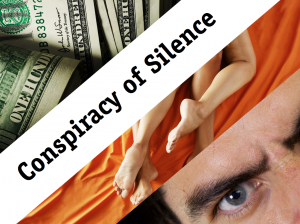Money, Anger, Sex: Conspiracy of Silence at Penn State
Responsible leadership requires one to listen for what is not being said, to read between the lines, to look beyond prevailing attitudes and dispositions. Recent events involving the Penn State football program dramatize how institutional pride and organizational politics conspire to conceal untouchable, unspeakable, even unbelievable actions and behaviors. Our human, all too human inclinations and proclivities can derail any of us, undermining even the most noble mission.
Many years ago when I was a young, aspiring professional, trying to find my way in the world, a spiritual guide and trusted confidant gave me an assignment: write a “spiritual autobiography”. I didn’t really grasp what he was asking me to do. I inquired for clarity and understanding. He instructed me to just take some blank sheets of paper (or my journal, if I had one) and to begin writing. He said I couldn’t do it wrong. I still remember clearly how he then paused, and added: “But I want you to write a spiritual autobiography in terms of your relationship to money, anger, and sex.” This was an unfamiliar, indeed uncomfortable, task.
As the years have turned into decades, I have thought on more than one occasion about the impact of completing this assignment and the insights it revealed to me. As a result I have verified, for myself, a hypothesis that has proven to be true in more than one context, including today at Penn State. In virtually every community – whether business, education, religious institution, or home – there is a conspiracy of silence about one or more of these dimensions of human experience. Despite good intentions or the most open and accepting environment, a self-consciousness or inhibition seems to prevail, sometimes as a result of cultural norms or even social taboo. Organizational politics are at play as well. Case in point:
Money: Penn State Football revenue is $70 million.
Anger: Police disperse Penn State student riot.
Sex: Extreme measures to hide scandal.
My hypothesis concerning this prevalent conspiracy of silence is further verified by my experience in the following way: I have noticed that engaging others in a respectful conversation or dialogue about any one of these dimensions, almost inevitably, leads to some personal transformation or healthy shift in community dynamics.
The courage to discuss the “undiscussables” differentiates leadership from management. A conspiracy of silence drains energy and ultimately destroys integrity, both personal and corporate.
Leadership requires us to step outside our comfort zones. Money, anger, sex! Test my hypothesis for yourself. Pay attention to what’s not being reported, what’s not being noticed, what’s not being said.

